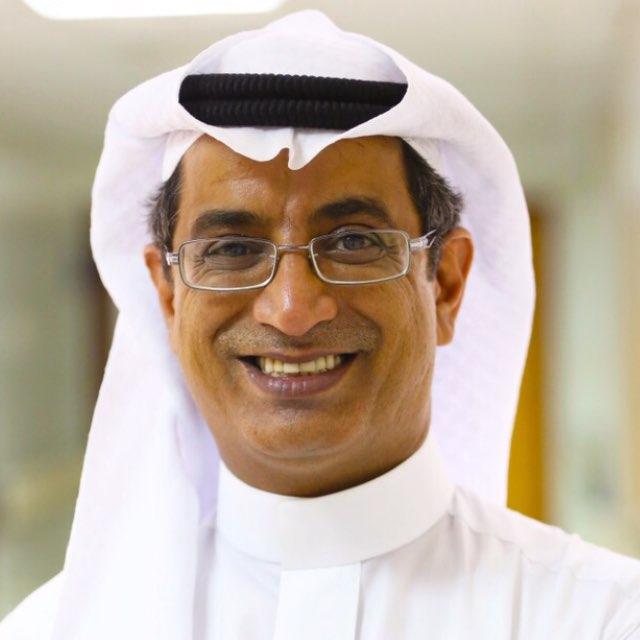In an article in the daily 'Okaz, Saudi journalist and writer Khalaf Al-Harbi called on the Saudi government to lift the ban on women driving. He stated that it is not a sin for women to drive but rather a natural and normal right, and that the ban keeps Saudi Arabia from advancing into the modern age.
Harbi mentioned the "courageous" decision taken by the government this April to redefine the operation and authority of the Committee for the Promotion of Virtue and the Prevention of Vice (the religious police).[1] This measure, he said, stopped violations of human rights by the religious police and put an end to the public criticism of this body in Saudi Arabia and the world. Citing the success of this measure, he called on the government to make similar reforms regarding the driving ban and allow women to drive, thereby ending the "illogical" situation that sets Saudi Arabia apart from the rest of the world.
The following are excerpts from the article.[2]

Khalaf Al-Harbi (Image: 'Okaz, Saudi Arabia)
"Enough time has passed to assess [the efficacy] of the decision to [re-]regulate the operation of the Committee for the Promotion of Virtue and the Prevention of Vice and to determine that the outcomes of this historic decision have been positive in most aspects - for [since the decision was taken] the unfortunate incidents that preoccupied public opinion and whose shameful echoes reached the global media have almost completely stopped. In addition, the social tension created by these repeated incidents has abated. Cooperation between the committee and the security personnel has been good, allowing [the authorities] to ensure [public] order without incidents that potentially infringe on human dignity. Everything went normally and, thank Allah, we did not see anything like the horrific sights which the opponents of the [decision] anticipated.
"This important and courageous decision instantly broke through an imaginary barrier that for years had prevented us from becoming a normal modern society like all the other societies in the world today. Those who benefitted from [the existence of] this imaginary barrier exerted psychological pressure on people by claiming that [even] coming close to [the barrier] would distance society from the directives of Islam, as though Islam is opposed to development, planning and the protection of human rights.
SUPPORT OUR WORK

"Today the state needs a similar government decision allowing women to drive cars, for this too is an imaginary barrier that sets our society apart from all other societies in the world. [This barrier] imposes an illogical reality that was and still is one of the reasons that [Saudi] society is preoccupied with petty issues and debates them endlessly. In addition, today we live in a very different economic situation than the one [we had in the past and which we] used to cover up our faults, that were known to all. I don't know how [it can be] that our [need to] develop compels us to encourage women to do simple jobs, yet at the same time we force her to employ a foreign driver to drive her to her place of work. Have you ever seen a working woman who employs a driver who devours half her pay?
"When we hesitate to take a decision that would eliminate one of the imaginary barriers that separate our society from the modern world, we essentially defend an illogical situation, for the government and the citizens, men and women, pay a price in various ways for this hesitation. I do not believe we can advance towards Vision 2030[3] as long as we restrain ourselves with shackles that are meaningless and have nothing to do with religion. We [Saudis], and even more than us the government, cannot say that denying women the natural right to drive is normal [behavior]. [Sure,] we can envision innumerable problems [that may be caused by allowing them to drive], just like [the problems] we imagined before reforming [the religious police] - but we cannot say that it is a sin for women to drive a car. When will the decision [finally] be taken that will rid the state and society of this enormous misconception?"
Endnotes:
[1] In 11 April 2016, the Saudi Council of Ministers issued a new regulation that limits the authority of the Committee for the Promotion of Virtue and the Prevention of Vice. Its main points are: the committee will have no authority to perform arrests, criminal investigations, surveillance or interrogations, but only to report suspicions to the police or the Authority for Combatting Drugs. Its officers will operate only during specific hours and will carry conspicuous identification badges. For more on the measures taken by the government in this context, see alarabiya.net, April 12, 2016.
[2] 'Okaz (Saudi Arabia), October 10, 2016.
[3] A Saudi plan setting out economic measures for the long-term survival of the kingdom. For the plan, see english.alarabiya.net, April 26, 2016.




